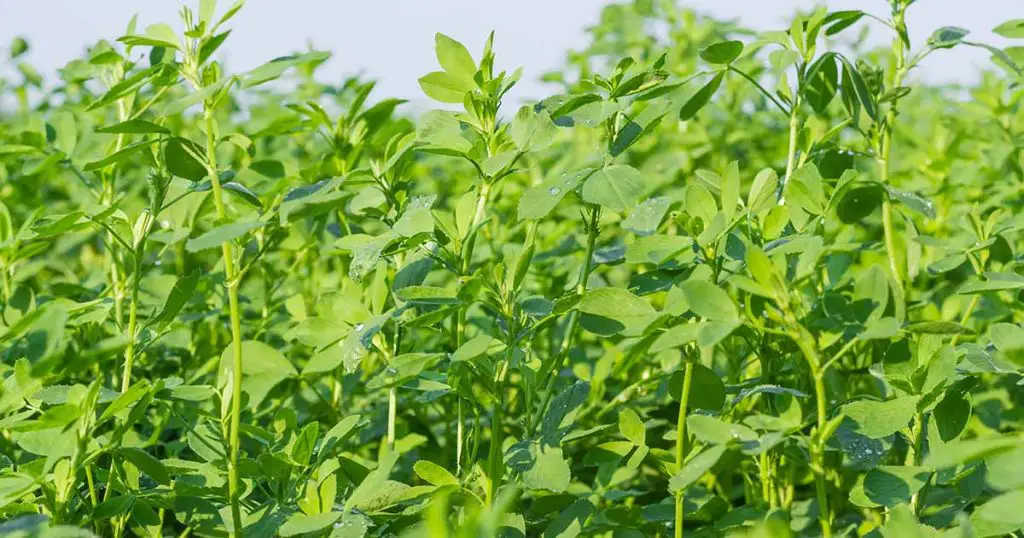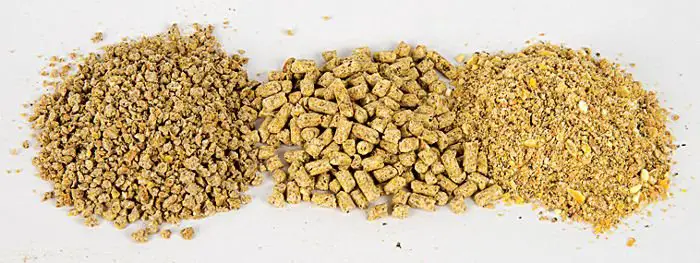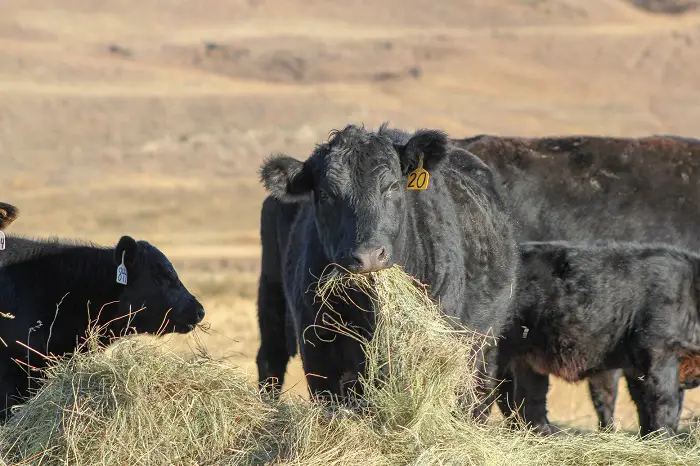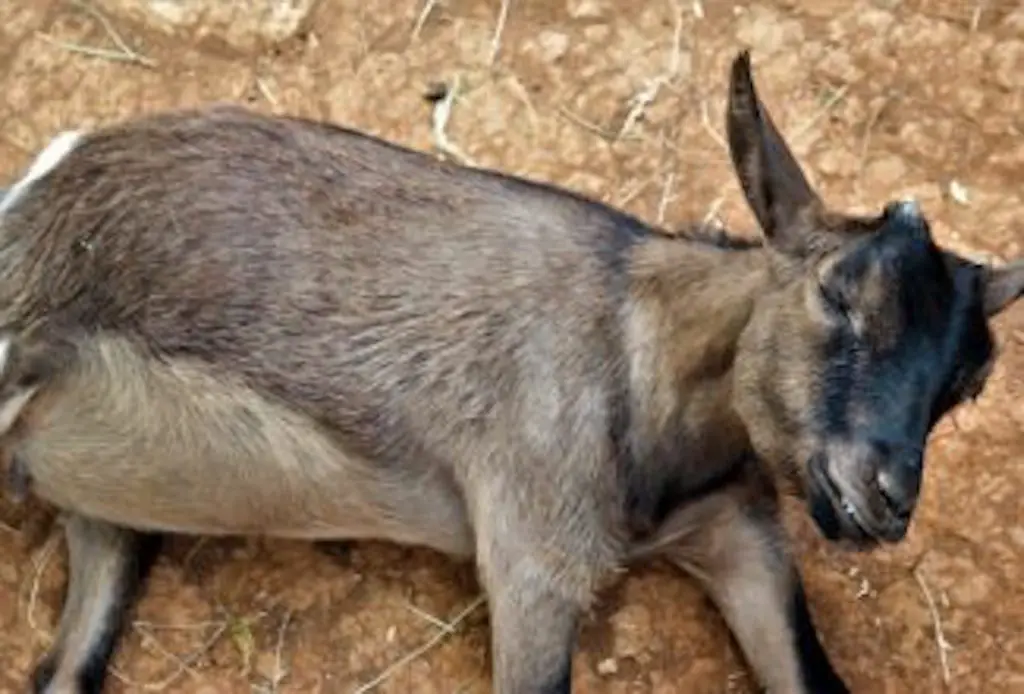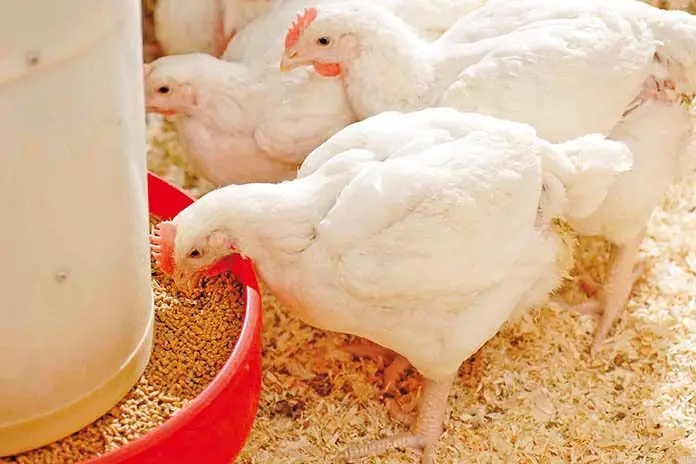Alfalfa is an amazing crop that can provide farmers with a wide range of benefits. Not only can it be used to feed cows, but it can also be used to improve soil health, increase crop yields, and provide essential nutrients to livestock. With alfalfa, farmers can ensure that their cows are getting the best nutrition possible at no serious costs at all. So, what is alfalfa and how does it affect cows? Let’s find out more.
Contents
What Is Alfalfa And Can Cows Really Eat It?
Alfalfa is an amazing pasture crop that can provide farmers with a wide range of benefits. Not only can it be used to feed cows, but it can also be used to improve soil health, increase crop yields, and provide essential nutrients to livestock. As this miracle plant is growing, it spreads evenly thoughout the field or land on which it is planted forming roots underground as it spreads.
- When it comes to the health and wellbeing of your cows, you want to make sure you’re providing them with the best nutrition possible. Alfalfa is a great source of nutrition for cows, and in fact, it’s often used in feed for cows (by farmers) and other livestock such as goats and sheep.
- Cows can eat alfalfa in its hay form when it has been harvested directly from the ground, as well as in pellet form when it has gone through a variety of chemical processes whereby it is dried and then pressurized into straws, and finally broken down into pellets.
- Alfalfa is high in protein, which is essential for cows, as it helps them to build muscle and produce milk. It’s also rich in vitamins and minerals, which can help cows to maintain a healthy digestive system and keep their immune systems strong.
- Plus, alfalfa is a great source of fiber, which can help cows to keep their digestive systems running smoothly. Whilst also providing a lot of energy for the cows when they graze. So not only is alfalfa good for the digestive system of a cow, it also helps give the cows energy during the day. And they need that because cows has one of the most complex digestive systems in the animal kingdom.
Why Alfalfa Isn’t Great For Every Cow
It is important to note that not all cows should eat alfalfa. Very young calves, for example, should not be fed alfalfa, as it can be too high in protein for their developing digestive systems which would in turn be very bad for their overall development.
- Additionally, if you’re looking to increase milk production in lactating or mothering cows, it’s important to feed your cows a balanced diet with some of the most basic food you feed the cows to present in the diet, as alfalfa alone is not enough to provide all the nutrition your cows need. It is a great natural protein supplement and only that.
- Alfalfa is a great source of nutrition (although you will not get all of the needed nutrition from it, that is why there are different types of food to provide different types of nutrients to the body) for cows and can be a beneficial part of their diet. However, it’s important to make sure you’re feeding your cows a balanced diet and that you’re taking into account the age and health of your cows before feeding them alfalfa.
- However, it is important to note that alfalfa can be harmful to cows if not fed in moderation. Cows should not be fed a diet that is overly packed with alfalfa, as this can lead to digestive issues and decreased milk production in diary cows. It is important to ensure that the alfalfa you feed your cows is of high quality and free of weeds (intruder/ alien plants that grow in the alfalfa’s place) and contaminants that may have been absorbed by the alfalfa as it was growing.
The Nutrients In Alfalfa That Are Essential To Cows’ Development
You will not get all of the nutrients you are looking for for your cows in alfalfa, however the spreading plant does have some of the more essential nutrients that are needed by cows on a day to day basis.
- These nutrients include; calcium, magnesium, potassium, sulfur, iron, cobalt manganese and zinc. All of which play surprisingly important roles in the development of cows. The above nutrients are absorbed from the alfalfa in very tiny dosages (because if they were absorbed in excess it could lead to very serious cases of poisoning) by the cows’ digestive systems, they then go on to help the cows’ bodies complete a multitude of tasks. Like in the case of calcium whereby it promotes the growth or multiplication of bone marrow, which is responsible for growing the bones of the cows and helps them maintain that strong stature even when they start to weigh a lot.
- The calcium in alfalfa works hand-in-hand which iron (which promotes the development of red blood cells in the bodies of the cows.) These two nutrients, together with the rest mentioned above are not only beneficial to the cows’ overall health and development but they also help keep the ground around the alfalfa rich and nourished for other plant life to thrive, that is why when you harvest alfalfa you may inevitably end up picking some weeds or contaminants (residue of herbicides that are used or sprayed to kill the weeds) as well.
Conclusion
In conclusion, alfalfa is an excellent choice when it comes to providing your cows with the best nutrition possible. With its high protein and vitamin and mineral content, alfalfa helps to build muscle, support the immune system, and keep the digestive system running smoothly. Plus, it’s available in both hay and pellet form, so you can find a way to incorporate it into your cows’ diets that works for you. As a farmer, you can be excited about the nutrition and wellbeing benefits that alfalfa can offer your cows.
